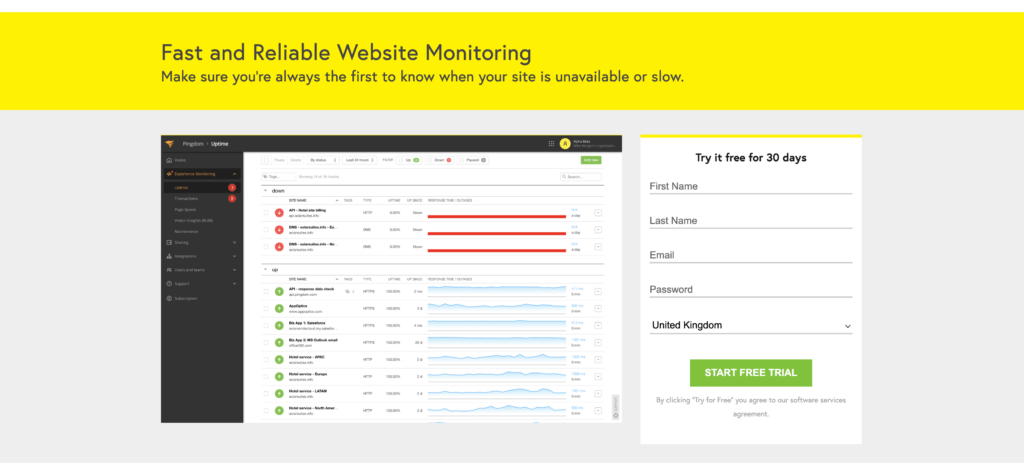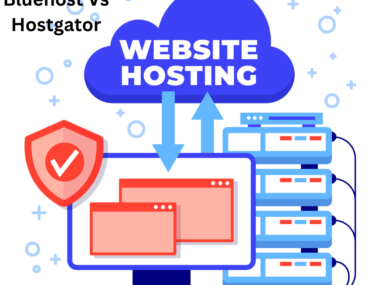Tips for Optimizing Speed And Reliability, To optimize web hosting speed and reliability, choose a reputable host. Monitor your site’s performance regularly. Implement caching and use a content delivery network (CDN) for efficiency.
Also Read
Finding the right balance between speed and reliability in web hosting is crucial for any successful website. Today’s internet users demand quick loading times and seamless online experiences. Search engines like Google prioritize these factors in their rankings. A high-quality hosting service forms the foundation of a performant site, but it’s just the beginning.
Site owners must proactively manage resources. They should streamline their content and employ various optimization techniques to stay ahead. This introduction sets the stage for an in-depth discussion. It’s about streamlining web hosting performance. This is essential for businesses and individuals aiming to enhance their online presence.
It’s also essential for providing users with the best possible experience. Whether you’re managing a small blog or a large e-commerce platform, these tips will help you maintain an efficient and dependable website.
Table of Contents
Speed And Reliability In Web Hosting
Imagine a shop that is slow to open its doors or closes unexpectedly. Web hosting works the same way. If your website loads slowly or suffers from downtime, visitors will likely leave and never return. Ensuring your website is fast and reliable is crucial for your online success.
The Importance of Website Performance
Website performance is key to user satisfaction. A fast website keeps users happy. Google loves speedy sites too, which helps your search rankings. Consider these stats:
- A one-second delay can lead to a 7% reduction in conversions.
- Most users expect a site to load in two seconds or less.
- Slow load times lead to higher bounce rates.
Web performance is not about speed alone. It’s about the consistency of that speed, day or night, across all devices. Uptime matters too. This is the amount of time a site is available to users. High uptime rates indicate a reliable host.
How Hosting Affects Your Site
Your choice of web host can make or break your site’s performance. Different hosting plans offer different levels of resources. Resources are like the fuel for your website’s engine.
| Hosting Type | Resource Level | Suitable For |
|---|---|---|
| Shared Hosting | Low | Small, low-traffic sites |
| Virtual Private Server (VPS) | Medium | Medium-sized businesses |
| Dedicated Server | High | Large, high-traffic sites |
A reliable host also ensures regular backups and security measures are in place. These protect your site from data loss and cyber threats.

Credit: blog.hubspot.com
Choosing The Right Web Host
When setting up a website, picking a web host is key. A good host boosts speed and reliability. Here’s how to choose the best one.
Evaluating Server Performance
Speed is everything for a website. It affects user experience and SEO. To assess this, check the server’s hardware specs. Look for high-performance SSD storage, ample RAM, and modern CPUs. Test loading times to ensure they meet your needs.
Uptime Guarantees And Their Significance
Uptime talks about how often your site is up and running. Look for a 99.9% uptime guarantee. A higher uptime means more reliability. Your site will always be available to visitors, which is crucial.
Customer Reviews And Testimonials
Real feedback gives insight into a host’s service. Search for consistent praises or complaints. Look at how the company handles issues. Happy customers often mean a trustworthy web host.
Optimizing Speed: Best Practices
Everyone loves a speedy website. A fast site boosts user experience. It helps with Search Engine Optimization. It increases conversion rates. Here are the best practices to optimize speed in web hosting.
Content Delivery Networks (cdns)
CDNs make websites fast. They store content in many places. This means users get data fast. It’s local to them. Use a CDN. Your website speed will improve.
Caching For Quicker Load Times
Caching saves time. It remembers website parts. It loads them quickly next time. Implement caching. Your pages will load faster.
- Browser Caching
- Server-Side Caching
- Plugin or Tool Caching
Image And File Compression Methods
Image and file compression reduce size. Smaller files make websites quicker. Use compression tools. Your website will load in a snap.
| Tool Type | Function |
|---|---|
| Image Compression | Makes images smaller |
| File Compression | Reduces file sizes |

Credit: kinsta.com
Ensuring Reliability Through Technology
Optimizing speed and reliability in web hosting is vital for user satisfaction. In our digital era, a website’s uptime and performance directly influence its success. Ensuring reliability through technology isn’t just an option; it’s a requirement. Explore key technological solutions that enhance hosting reliability.
Redundant Hosting And Data Backup
Redundant hosting ensures your website stays online, even if one server fails. Think of it as an insurance policy for your online presence. It involves multiple servers holding the same data. If one goes down, another takes over instantly. This setup provides seamless user experiences—no interruptions, no downtime.
- Mirror your data across various locations.
- Use automated failover mechanisms.
- Regularly test backup systems for a swift recovery.
Updates And Maintenance Protocols
Keeping software up to date is critical. Updated systems close security gaps and improve performance. A set maintenance protocol keeps your hosting environment in prime condition. Outlining these protocols ensures consistency and reliability.
- Schedule regular updates.
- Check for patches and apply them promptly.
- Monitor hosting environments for irregularities.
Security Measures To Prevent Downtime
Preventive security measures protect against attacks that cause downtime. A robust security strategy is a cornerstone of reliable web hosting. Proper security checks and balances eliminate threats and keep your site up and running.
| Security Feature | Function |
|---|---|
| Firewalls | Block unauthorized access |
| DDoS Protection | Shield against large-scale attacks |
| SSL Encryption | Secure data transfers |
Regular Monitoring And Improvements
Keeping a website fast and reliable is not a one-time job. Consistent monitoring and making ongoing improvements are crucial for maintaining peak performance. Just like a car needs regular check-ups, a website needs routine inspections. Inspections identify performance issues. This could frustrate visitors or harm your search engine ranking.
Tools For Tracking Website Performance
Various tools exist to help you track how well your website performs.
- Google PageSpeed Insights: Measures load times and gives optimization suggestions.
- GTmetrix: Offers a comprehensive look at your site’s performance and speed.
- Pingdom: Monitors uptime, performance, and interactions on your website.
Select the right tools that align with your web hosting environment for accurate results.
Analyzing Data For Speed Enhancements
After gathering data, analyze the findings to pinpoint what slows down your site.
- Review load times for pages.
- Examine server response times.
- Check for heavy images or scripts impacting speed.
Implement changes based on data to boost speed and efficiency.
Scheduled Check-ups And Audits
Like visiting a doctor, websites need regular check-ups.
| Frequency | Action |
|---|---|
| Weekly | Quick performance scans |
| Monthly | In-depth analysis of speed and user experience |
| Quarterly | Comprehensive audits of website and hosting setup |
Automate these checks where possible to ensure consistency.
User Experience And SEO Impact
Both the speed and reliability of a website are vital. They make visitors happy and improve website ranks in search engines. A fast-loading website keeps users engaged. A reliable website shows up higher in search results. Together, they lead to a better user experience (UX). They also result in higher search engine optimization (SEO).
How Speed Influences User Engagement
Users love fast websites. A website that loads quickly keeps visitors from leaving. It also encourages them to interact more with the content.
- Quicker page loads mean more page views.
- Fast checkouts boost online sales.
- A faster response makes for more satisfied users.
Websites should load in less than three seconds to keep interest.
The Role Of Reliability In SEO Ranking
High uptime is crucial for SEO rankings. Search engines favor reliable sites. They want to point users to websites that are always available.
- Choose a host with 99.9% uptime.
- Use monitoring tools to track your website’s reliability.
- Regular updates and backups are a must.
Balancing Aesthetics And Performance
A beautiful site is good, but it must also perform well. Heavy images and scripts can slow a site down.
| Action | Benefit |
|---|---|
| Optimize images | Improves load time |
| Minify CSS & JavaScript | Reduces file size |
| Use caching | Speeds up loading for repeat visitors |
Keep it simple and efficient to make both users and search engines happy.

Credit: getshogun.com
Frequently Asked Questions About Tips for Optimizing Speed and Reliability in Web Hosting?
How Do You Optimize A Website For Performance And Speed?
Optimize images and minify CSS, JavaScript, and HTML. Leverage browser caching and use content delivery networks. Prioritize above-the-fold content loading and reduce server response time. Enable compression and consider AMP for mobile.
How Can We Improve Web Server Performance?
To improve web server performance, optimize content delivery. Use caching and upgrade hardware when necessary. Regularly update and maintain server software. Monitor traffic to balance loads effectively.
Which of The Following Are Best Practices For Optimizing Page Speed?
Best practices for optimizing page speed include compressing images. Enabling browser caching is also important. Minimizing CSS and JavaScript files is another key practice. Also, using content delivery networks and optimizing server response times.
Which of The Following Is The Best Way To Improve Website Loading Speed?
Optimizing images, minifying CSS, JavaScript, and HTML, leveraging browser caching, and reducing server response time are effective ways to boost website loading speed. Using a content distribution network (CDN) also helps.
Conclusion
Your website’s speed and reliability must be top-notch. This is crucial for keeping users engaged and satisfied. Implement the optimization strategies shared in this post. You’re set to boost your site’s performance. Remember, a swift and stable web presence can significantly advance your online success.
Keep refining and monitoring your hosting solutions for the best results.












